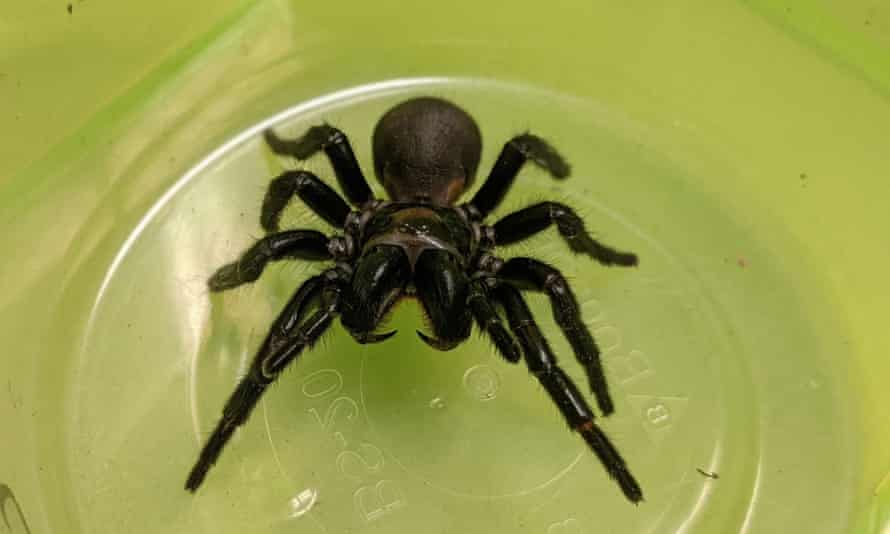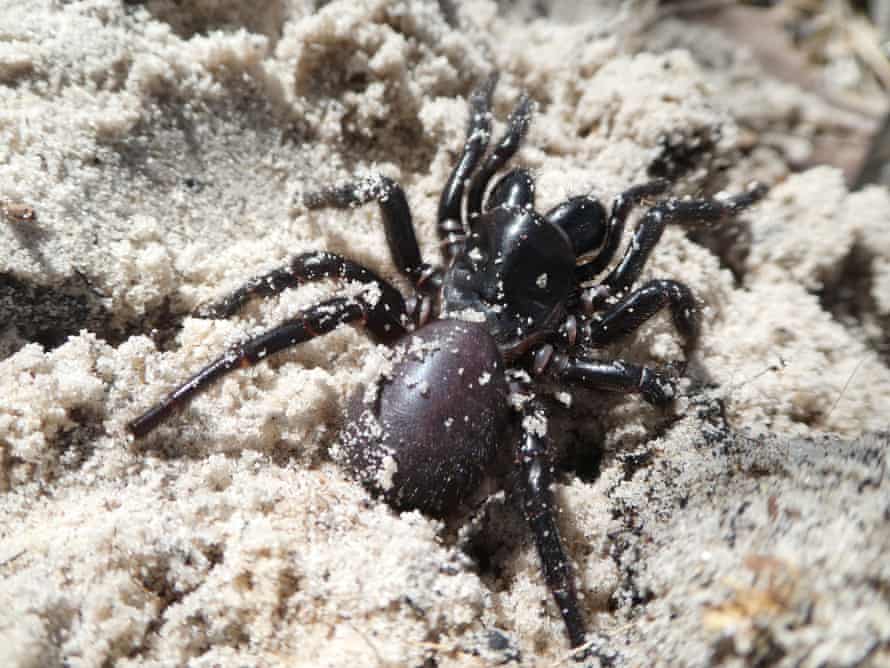Exploring Nature's Gifts to Medical Science
"This will not only help the hundreds of thousands of people who have a heart attack every year around the world, it could also increase the number and quality of donor hearts, which will give hope to those waiting on the transplant list.""Usually, if the donor heart has stopped beating for more than 30 minutes before retrieval, the heart can't be used.""Even if we can buy an extra ten minutes, that could make the difference between someone having a heart and someone missing out. For people who are literally on death's door, this could be life-changing."Peter Macdonald, professor, Victor Chang Cardiac Research Institute, Australia
 |
| Australian scientists have developed a drug candidate from the venom of the Fraser Island funnel-web spider that may prevent heart attack damage in humans. Photograph: Samantha Nixon/PR IMAGE |
Some of the most poisonous creatures on the planet can be found in Australia. Coincidentally, scientists in Australia discovered that spider venom may lead to a new class of drugs that would conceivably be of inestimable help to victims of heart attacks. Spider venom is used by spiders themselves for the purpose of immobilizing or killing their victims so they can be consumed with no fuss by their predator.
Scientists from University of Queensland and Sydney's Victor Chang Cardiac Research Institute are focusing on producing a potential drug candidate derived from spider venom. The drug's purpose for use in humans is to block the "death signal" the heart sends during a heart attack causing heart cells to die. No drugs are currently in clinical use to prevent the damage that heart attacks cause.
The protein to be used in a new drug is called Hila, identified originally in the funnel-web spider's venom found on Fraser Island. Researchers have full confidence it could be used as well in the treatment of donor hearts to increase the distance they can be transported, improving the likelihood of a successful transplant. The study that holds out this hope was recently published in the journal Circulation.
A new diagnostic drug currently in development makes use of the venom of the Israeli deathstalker scorpion along with an infrared dye meant to identify and illuminate tumours, so it isn't only spiders' deadly venom that researchers focus on to discover potential new drugs for the human pharmacopeia. The drug derived from the deathstalker scorpion has gone through safety testing and early clinical trials viewing brain tumours in children.
Some scientists regard the funnel-web spider as one of the most dangerous in the world. They possess fangs that are large, powerful, able to penetrate fingernails and soft shoes. While still in its early stages, the Australian heart research has seen scientists involved testing the drug candidate on beating human heart cells that have been exposed to heart attack stresses, to determine whether the drug improved their survival.
The researchers are now proposing to begin human clinical trials within the next two to three years. As the leading cause of death on a global scale, cardiovascular diseases are responsible for taking about 17.9 million lives annually, according to the World Health Organization. At least four of five cardiovascular deaths result from heart attacks and strokes.
A professor at the University of Queensland, Glenn King, earlier had identified a small protein in the venom of the funnel-web spider, demonstrating markedly improved recovery from stroke. The current Australian discovery uses that earlier work as a scaffolding upon which their more current research has been built.
 |
| The protein known as Hi1a has been found in the venom of the Fraser Island funnel-web spider. Photograph: Samantha Nixon/PR IMAGE |
Labels: Australia, Cardiovascular Disease, Funnel-Web Spider, Heart Drug, Research, University of Queensland University, Victor Chang Cardiac Research Institute

0 Comments:
Post a Comment
<< Home